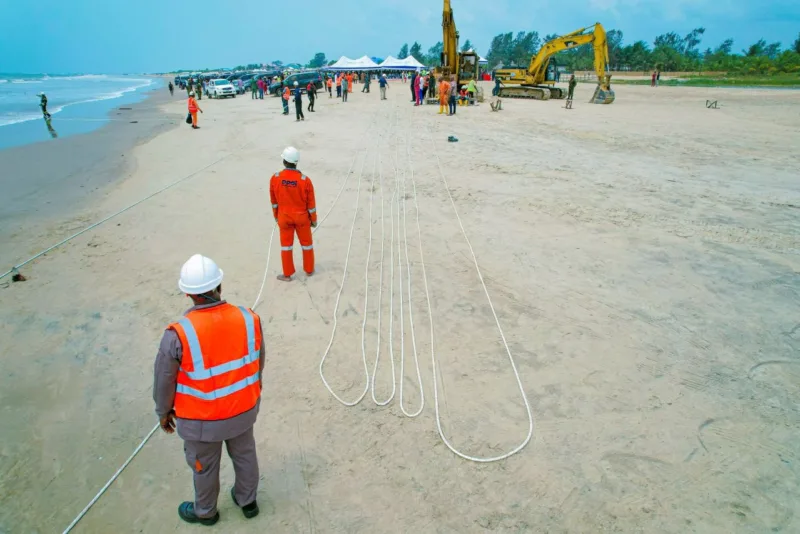The recent breakage of subsea cables has led to significant disruptions in internet services across Nigeria and several West African countries. It also came with a great revenue losses to the countries affected.
According to MainOne, the company responsible for managing some of these cables, it will take approximately six to eight weeks to fully repair the damaged networks and restore connectivity.
The disruption occurred in the early hours of Thursday, March 14, 2024, affecting multiple networks in 12 African countries, including Nigeria. Among the affected undersea cables were the West Africa Cable System (WACS), the Africa Coast to Europe (ACE), MainOne, and SAT3. This disruption had a detrimental impact on data and fixed telecom services in various countries, including Nigeria, Ghana, Senegal, and Cote d’Ivoire, extending to regions in eastern and southern Africa.
The economic implications of this disruption have been substantial, with Nigeria alone facing losses estimated in the billions of naira due to downtime caused by the damaged cables. NetBlocks, a cybersecurity and internet governance watchdog, estimated that Nigeria incurred losses of over N273 billion in just four days between March 14 and March 17.
MainOne, the digital infrastructure company responsible for managing some of the affected cables, provided a revised schedule for repair efforts. The company cited the extensive damage as the reason for the extended timeline for restoration. Despite the challenges, MainOne expressed optimism that repairs would be completed, and services would be fully restored.
To prevent future disruptions, Chris Wood, CEO of WIOCC, emphasized the need for investments in new cable infrastructure. He estimated that it would cost approximately $1 billion to lay new cables from South Africa to Europe, connecting multiple countries, including Nigeria. However, Wood highlighted the significant financial and logistical challenges involved in such endeavors.
Meanwhile, efforts are underway to address the immediate and long-term implications of the cable breakage. Nigeria’s Minister of Communications and Digital Economy, Dr. Bosun Tijani, revealed ongoing discussions with the International Telecommunication Union (ITU) to protect underwater cables and other digital infrastructure. Tijani expressed hope for the complete restoration of telecom services in Nigeria following discussions with ITU officials in Geneva.
The Nigerian Communications Commission (NCC) has also been proactive in addressing the situation. The commission notified consumers that Mobile Network Operators (MNOs) were gradually working to restore telecommunications voice and data services. Additionally, Dr. Aminu Maida, the executive vice chairman of the NCC, called for a coordinated regional approach to protect shared telecommunications infrastructure and diversify connectivity.
Maida emphasized the importance of securing telecom infrastructure for attracting foreign investment and enhancing investor confidence in the West African sub-region. He proposed the establishment of a framework for joint monitoring, risk mitigation, and emergency response procedures for submarine cables passing through the region.
In conclusion, the recent subsea cable breakage has underscored the critical importance of maintaining and protecting telecommunications infrastructure in Nigeria and West Africa. As repair efforts continue, stakeholders are working towards enhancing resilience and ensuring uninterrupted connectivity in the future.









Join our Channel...